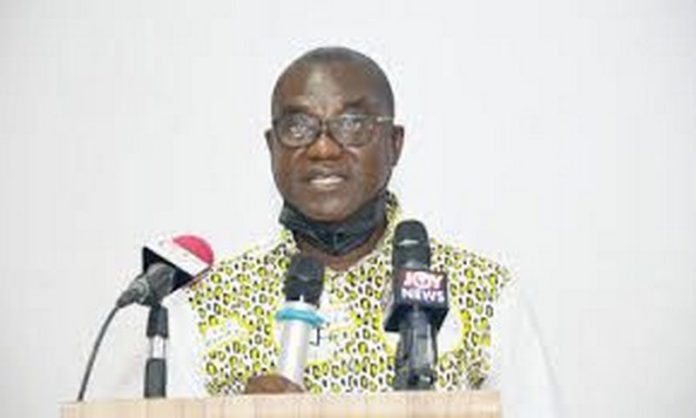Amnesty International (Ghana) has called on the State to abolish the death penalty in Ghana following the grave human rights violation it poses to individuals accused of crimes punishable by death in the constitution of Ghana.
The call was made at the headquarters of Amnesty International Ghana in a press briefing to mark the 19th World Day Against the Death Penalty (2021) on Tuesday, 12th October 2021 on the theme ‘Women and the Death Penalty, an invisible reality’.
Amnesty International raised a number of concerns about women on the death row, arguing that their conditions in prison do not meet international standards. Both men and women have been reported to be in poor conditions in typically overcrowded prisons in addition to poor sanitary facilities, isolation, and lack of access to medical care and to recreational and educational opportunities available to other prisoners.
According to the Director of Amnesty International Ghana, Mr. Frank Doyi, there is currently no evidence that points to the fat that the death penalty deters crime. Research has shown that in countries where the death penalty is used, such as the United State of America, crime rates are still high. He is of the view that if human life is a fundamental human right, and killing is wrong, then the state must not be a party to taking its citizens’ lives.
Research has also shown that the death penalty targets the poor. The United Nations Human Rights group has revealed that people living in poverty risk being victims because they are easy targets for the police and cannot afford a lawyer. This means that they are unable to produce expert evidence beyond their means and are unable to appeal judgements. Many of these poor people also are unable to afford bails, a situation that keeps them in police custody so that they are unable to prepare adequately for an effective defence, the United Nations Human Rights has said.
In the light of these inequalities, Amnesty international has called on the Minister of Justice and Attorney General of Ghana, Hon. Godfred Yeboah Dame to put into effect the President’s directive to initiate an amendment process of the criminal and other Offences Act-1960 (Act 29) to abolish the death penalty for most offences in Ghana.
The death penalty in Ghana is imposed as a mandatory punishment for murder, meaning that judges are left with no alternatives in sentencing and do not have the option of assessing the context in which the crime was committed or the background of the defendants at sentencing. This means that many who have been sentenced to death, as research has shown, committed the ‘crimes’ in self-defence, sometimes under prolonged torture at the hands of their victims and most times, sensed grave threats against their own lives.
Ghana carried the last execution in 1993 and has since not executed anyone on the death row. However, judges continue to sentence people to death, mainly because there is no alternative sentence for crimes considered as murder under the laws of Ghana. As has already been shown, judges are not allowed to assess the merits of a murder case to fully understand the circumstances under which the crime was committed, meaning that once someone has lost a life at one’s hand, the death penalty must be applied.
There are currently more than 150 people on the death row and the aim of Amnesty International Ghana is to see the removal of the Death Penalty from the constitution and other legislations in Ghana.
Amnesty international Ghana has also called on the Parliament of Ghana to support and pass the Private Member Bill that is currently before it (introduced by Hon. Francis Xavier Sosu) to remove the death penalty from the Criminal and Other Offences Act, 1960 (Act 29) and replace it with other sentences such as life imprisonment.

